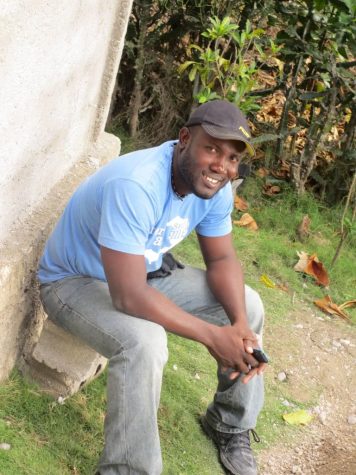Thankfulness in Developed v.s. Developing Nations
November 25, 2020
Throughout the world, gratitude affects people in many different ways. For some people, gratitude doesn’t come that easily. For others, it comes naturally to them or they are thankful because of where they grew up.
Genetics plays a big role in why some people are more grateful than others. Summer Allen, a writer for Greater Good Magazine, explains how our brain structure is different depending on how thankful we are: ¨Research suggests there may be differences in brain structure and activity between more and less grateful people—although we can’t say for sure if those differences are the result of nature or nurture or some interaction between the two,¨ Allen says.
Our brains and our genes aren’t the only things that affect our gratitude. Kira M. Newman, a writer for Greater Good Magazine, explains that Our thankfulness also depends on where we grew up and what we have. “But there’s a problem with prescribing gratitude to everyone: Most of what we know about it comes from studying Americans—and, specifically, the mainly white American college students from the campuses where researchers work. That creates a cultural bias in the science, and that’s why more and more researchers are exploring what gratitude looks and feels like in a range of cultures.” Newman explains how gratitude is associated with culture.
Envy and narcissism also both have a big impact on our levels of gratitude.
“Narcissism, materialism, and envy may even cause people’s gratitude to degrade over time,” Allen says. “A 2017 study by Rebecca Solom, Phil Watkins, and colleagues found that undergraduate students with higher levels of narcissism—along with cynicism, materialism, and envy—at the beginning of the study were less grateful two months later, even after controlling for their gratitude levels at the beginning of the study.”
Many people in developed countries are always comparing themselves to others and don’t even realize how much they have to be grateful for. People are always worried about their own satisfaction when they should step back and appreciate everything they have.
Abby Bush, a freshman at Jonathan Alder Highschool shares what she is thankful for as someone living in a developed country. “The main things I’m thankful for are my family, friends, and health. I’m thankful for my family because they always go above and beyond to make me feel loved and supported constantly. I’m thankful for my friends because they’re always there for me whenever I need them. I’m thankful for my health because it allows me to do things that not every kid has the chance to do,” Bush says.
Throughout the world, gratitude affects people in many ways. People always compare themselves to others, gratitude is affected by where you live or grew up, and what resources you have.

Pierre Louis Jean Cardiny Souffrant, who also goes by Caz, lives in Mellier, Haiti. He works as Interpreter to make money for his family. Here is what he is thankful for as someone living in a developing country.
¨I would say that I’m thankful for Jesus, thankful for my family, for my friends, [and] thankful for my freedom, because there [are] people in prison. [Im] Also thankful for [my] health because there [are] many people who [are] suffering in the hospital.¨ Caz says. ¨Also, as a Christian, Jesus is the savior of our life, without him we won’t be free, we won’t have this privilege to have everything we need in [life]. He is above all things. That’s why I’m thankful for Jesus first.¨
As a Christain, Caz is thankful for Jesus because he believes that he is above all things and he has grown up going to church in his community.
“The people from other countries might not be grateful for the same things as me because of the resources they have. We could be living very different lives which is why I may not be grateful for the same things as others in other countries,” Bush says.













